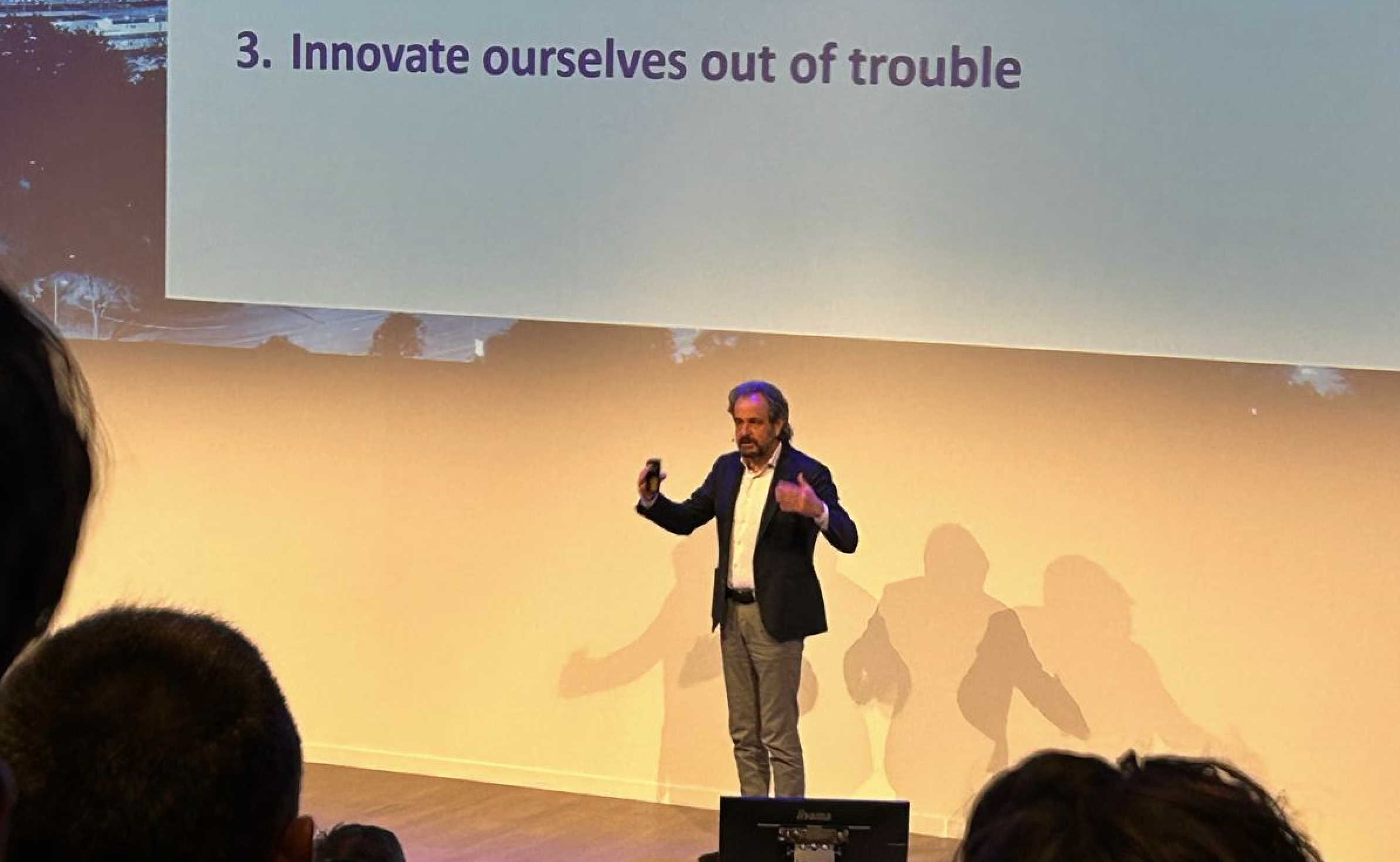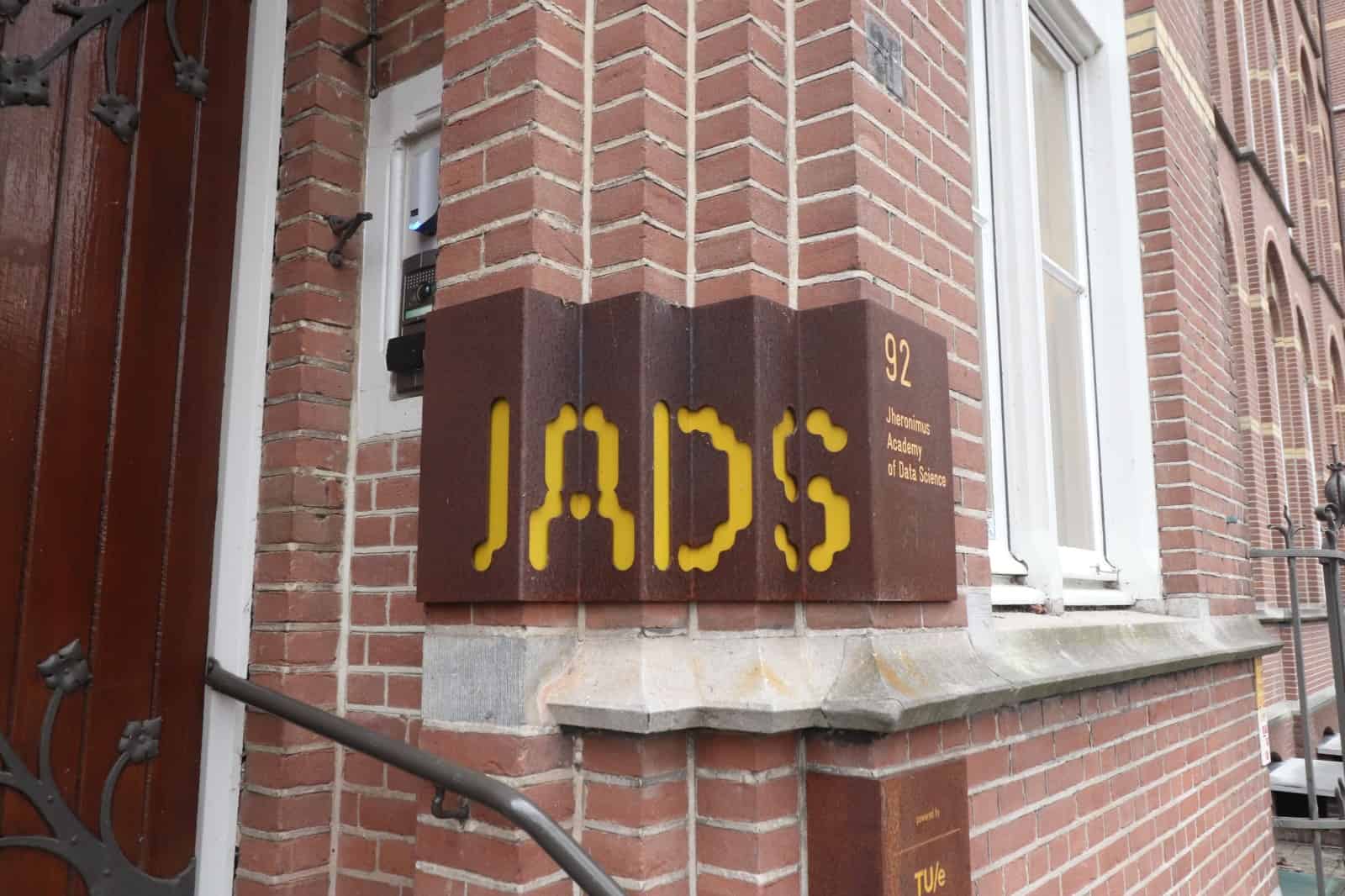
Smart lighting, self-driving cars and service robots that care for our elderly relatives. That all seems to be becoming reality pretty soon. We are already dealing with smart algorithms in less obvious ways as well. Consider, for example, your timeline on social media. And new applications of Artificial Intelligence (AI) are being added every day. We need well-trained people to make all this possible. More and more courses are emerging around data and AI. Even primary school children are sometimes taught the basics of programming. But are these adjustments in education enough? Doesn’t education need a complete overhaul to train the new generations of workers and entrepreneurs?
“Yes,” say Buster Franken, founder of FruitPunch AI, and Bob van den Berge from the Bit Academy. They focus on new forms of education to prepare young people for the future. Franken himself studied at the Eindhoven University of Technology (TU/e). “At university, students learn the theory behind a technology. Then they are sent out into the world to apply the technology,” he says. He believes that this needs to change. “With FruitPunch AI, we instead focus first on a problem and see how we can find a solution for it with technology.”
Dutch AI Coalition
Just as the brain is still the most elusive part of our body, artificial intelligence is still very much uncharted territory. That our brains control our bodies is something we as humans have come to accept. However, this does not apply to the way in which AI is gradually taking over control of our society. We would like to have a few more vigorous debates about that. In a series of articles and interviews, Innovation Origins, in close cooperation with the Dutch AI Coalition, reveals what the average Dutch person feels about this all-important social revolution. How do we as humans keep our hands on the controls? The fears, the opportunities, the dilemmas.
The NL AIC also champions the importance of ensuring appropriate education, holding on to talent, continuing to evolve and providing the right training. To put this into practice, several participants come together under the scope of Education and the Human Capital building block .
Impact
Franken started FruitPunch AI because he wants to have a positive impact on the world. He is convinced that AI can improve the world, for example by helping to make solutions to climate change possible. This is why he set up several projects to use AI for good. Enthusiastic people get to work on different projects this way. Such as drones to spot poachers in nature reserves and robots to grow crops more efficiently on smaller plots of arable land. “We make an impact by doing this, of course. But that impact would be much greater if we trained more people to use AI for good,” he states.
Which is why, in addition to its own projects, FruitPunch AI is now focusing primarily on education. The founders are setting up master classes and training courses for different levels of education. Franken wants to teach people who are eager to learn about AI by looking for solutions together to practical problems from the business world, what is known as challenge-based learning. “There is room in this for anyone who wants to learn,” Franken stresses. “We believe that everyone – from all kinds of domains – should get a better understanding of AI,” he adds.
Innovation
In principle everyone is welcome at FruitPunch AI, although Franken has noticed that it is mainly higher vocational and university students (Dutch HBO and WO) and lifelong learners who are joining up. While learning about AI and other aspects of IT is also very important for vocational (MBO) students. They will also probably have to deal with it in their future careers, in whatever field. Bob van den Berge and Dennis Berkhof from the Bit Academy have also noticed that. The company runs a software development training program at MBO level 4 as part of the Amsterdam ROC vocational school curriculum. It is a new approach to education that focuses on student autonomy, peer-to-peer learning and a good connection with the business community. Students work in an open space at their own pace on different modules.
“IT professionals today really don’t sit around in the basement of a company programming all day,” states Van den Berge. “The modern-day IT person is not only good at tech, but is also good at communication. He or she confers with the client and with colleagues to come up with a good solution together. It has become a really social profession.” Therefore, there is a lot of focus within the Bit Academy training on soft skills such as giving feedback.
Van den Berge says that the connection with the business world is also very important in addition to soft skills. “It’s a rapidly changing world. We want to guard against our IT lessons becoming history lessons. That’s why we work with coaches who are also still active in the business.” This yields real-life issues and examples, which are also so important at FruitPunch AI. That way, the lessons are better able to match the needs of the market.

System
“For large educational institutions such as the ROC, it is difficult to keep courses wholly up to date,” says Ton Paffen, program manager House of Digital at ROC Amsterdam-Flevoland. The education system in the Netherlands works with qualification dossiers. These outline the requirements that a course of study must meet. Schools draw these up in collaboration with the business community. This is how they try to match education to companies where students will later work. These dossiers are valid for four years and very often the first discussions about the dossier are held a few years before the start of the course. A study program then has to meet the same criteria for quite a few years. This is difficult in IT because this professional field changes at a much faster rate.
This is the reason why the ROC works together with the Bit Academy. Ultimately, they have to do justice to the qualification dossier so that students can receive a recognized diploma. Nevertheless, it is easier for the Bit Academy, a relatively small organization, to provide up-to-date education. Paffen: “We try to go a little bit outside the box, but on the other hand, we make sure that the education we provide stays inspection-proof.”
Speedboot
“The metaphor of the oil tanker and the speedboat is fitting here,” says Dennis Berkhof. The ROC is the slow moving and steady oil tanker, while the Bit Academy darts back and forth between the business community and the educational institution like a fast speedboat. Paffen: “The Bit Academy is more creative when it comes to coming up with new concepts in education, and they can keep in touch with companies more readily. But a speedboat also tips over faster.” The two boats need each other to sail the ideal course.
At FruitPunch AI, Franken is also taking into account rapidly changing technology. “Working out a two-year course now makes no sense. Because in two years’ time, today’s technology will already be obsolete,” he says. That’s why FruitPunch AI works with master classes and other short courses that match the needs of students at a particular time. That way, the education they give is also more in line with the practical solutions they are working on at the time.
Cross-sectoral
Innovation Origins asked a number of Dutch people what education should do to accommodate the future with AI. They felt that working with AI should become a part of all education, both in technical and non-technical studies. “It is cross-sectoral,” is what is being said. Although it is felt that the technical and theoretical aspect will be more evident in some courses than others. Ethics, privacy and philosophy around AI are seen – in addition to the technical components – as important aspects for training programs.
Ethics
In the case of Al, technology itself is not the only important and rapidly changing aspect. Ethics is crucial according to both trainers. The Bit Academy works with a special module on legislation, in which the social and ethical side of the subject is also a key issue. “For example, what do you do if your boss asks you to build something that you yourself have some doubts about? As a software developer, it is good to be able to indicate when you do not agree with something. Consider, for example, the tracking software built at Facebook. In some cases it really is okay to say no,” says Van den Berge.
Franken takes this a step further. One of his main goals is to bring about a change in the mindset of a large group of people. “Within FruitPunch AI , we are putting AI to work for good. We look at how AI and the people working with it can contribute to society, rather than just looking at making money,” he explains. Once they move on from FruitPunch AI, people start working at different companies, gradually making their way to the top of large corporations. “That’s where they can bring about change. They spread their mission there to use AI to make the world a better place,” Franken is hoping. “That’s going to bring about big changes in the world.”
Growth
FruitPunch AI and the Bit Academy both have grand plans to expand further. Van den Berge: ” With Bit Academy, we want to become the training provider for IT professionals. We want to offer not only an MBO, but also an HBO and a WO training program so that students can quickly and easily grow with us.” FruitPunch AI has just landed a large investment from LUMO Labs. This will allow the company to set up various projects and master classes. The goal is to offer the courses for free all over the world. Franken: “There is a huge demand for tech talent. Now we let that opportunity pass us by because not everyone has a chance of a good education. That needs to change.”







